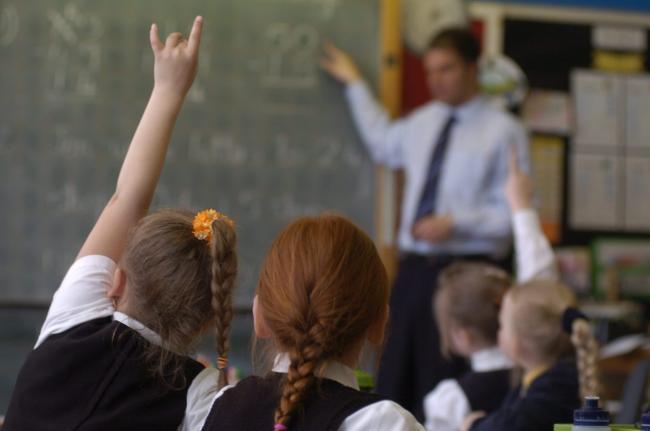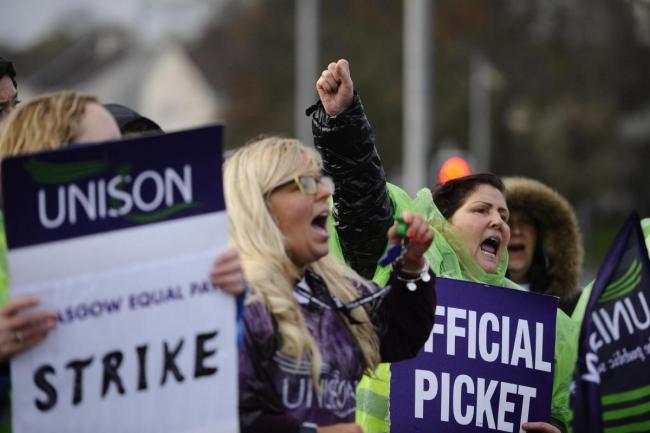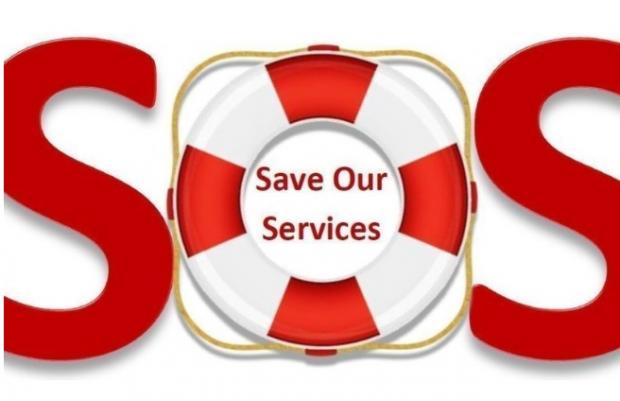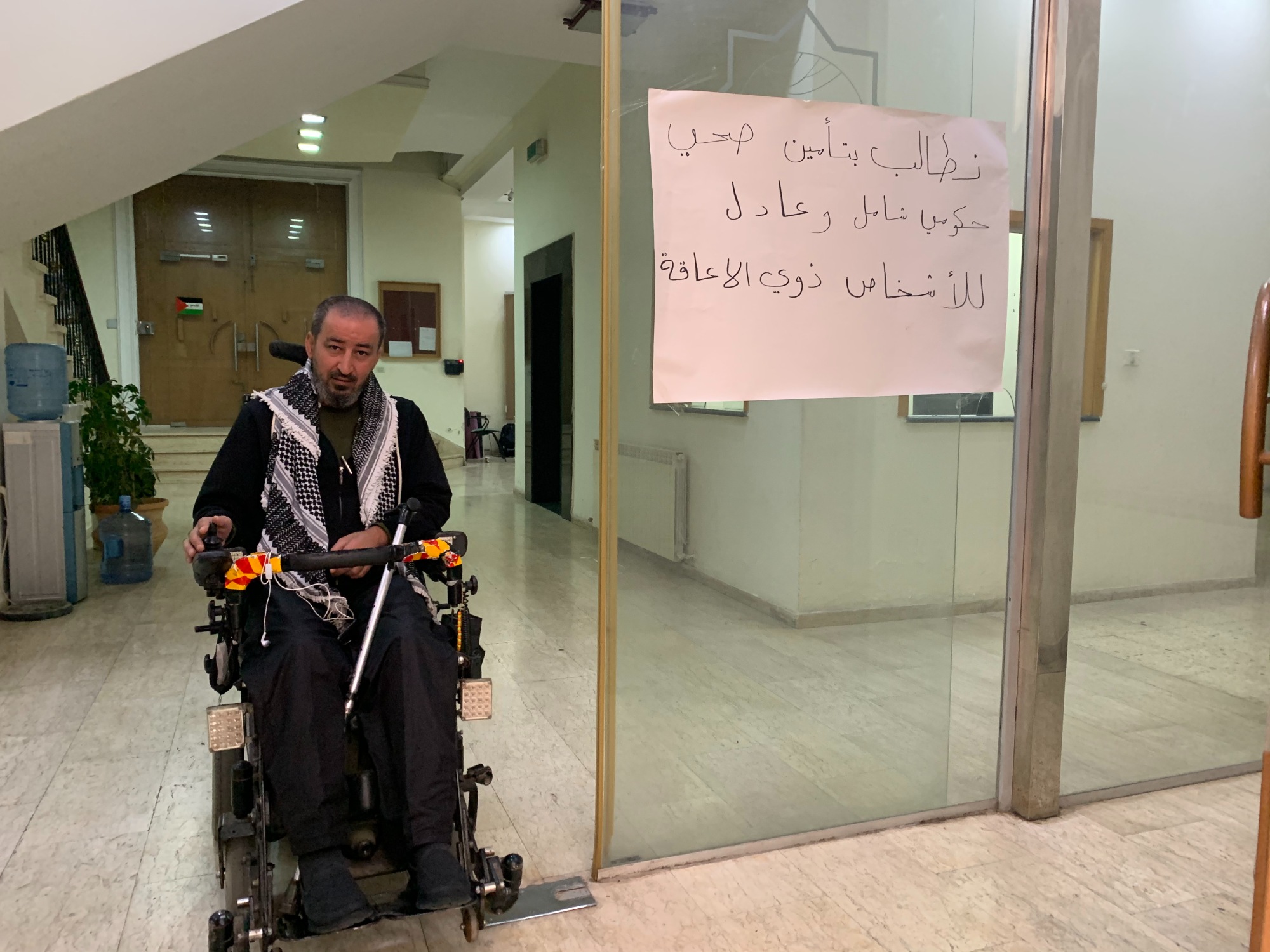By Martin Williams @MWilliamsHT Senior News Reporter

A UNION has called for urgent government action to stop a North Sea oil and gas industry "jobs massacre".
Offshore union RMT has said the North Sea energy industry was "teetering on the brink" having been hit by a double whammy of plummeting oil prices and the coronavirus pandemic.
As many as 8,000 jobs are thought to have been lost in the industry this year and trade body Oil and Gas UK previously warned that number could rise to 30,000 by the end of 2020.
In October an Offshore survey of 1383 oil and gas workers asserted that nearly half of North Sea oil workers had been either made redundant or been furloughed since lockdown, with four in five saying they are now open to leaving the industry.
READ MORE: Nearly half North Sea oil workers are either redundant or furloughed and 'face barriers' going green
The analysis comes after Royal Dutch Shell said it expected to cut up to 9,000 jobs as it looked to slash spending amid the crude price plunge triggered by the coronavirus crisis.
The oil and gas giant, which is a big player in the North Sea, said the cuts formed part of a simplification programme that it expected would help it save up to £1.9bn annually.
RMT general secretary Mick Cash said: "After the pandemic took hold, RMT demanded that ministers deliver a package of measures to ensure that offshore oil and gas workers aren't dumped by the industry in a rush to protect profits and dividends.
“Yet today we still have had nothing from Government whilst thousands of jobs are lost. Employers continue to estimate 30,000 job losses by October 2021.
“Exploration and production plans exist for 2.5 billion barrels of oil but the required investment has disappeared. If the Government doesn't follow RMT's advice and use decommissioning rate relief to protect jobs, skills, investment and resources, then offshore workers' skills and livelihoods will disappear along with any prospects of a 'Just Transition' to a net zero carbon economy. We cannot let that happen."
During a virtual Scottish Trades Union Congress event Jake Molloy, RMT regional organiser, said operators had “pulled the plug” on projects, leading to the drilling sector being “wiped out”.
He also claimed that the impact of Covid-19 is only responsible for a “fraction” of the job losses that have hit the industry in the last few months.
He said: “Operators are sitting on their money, they’re not prepared to spend. That doesn’t work for the North Sea industry anymore and that’s why there’s this ripple effect on the wider supply chain.
“We’ve seen boom and bust in the industry before and I used to think the downturn in 1986 was the worst ever. This is the worst, there’s no doubt about it.
“But it has been like smoke and mirrors with Covid. The pandemic has been at the front but in actual fact, behind the scenes, the oil companies have pulled the plug – they’re not prepared to spend or invest in anything.
“We’re in a mature, declining basin with a finite resource and we’ve got climate change on our back as well – the North Sea is teetering on the brink here.”
Nearly half North Sea oil workers are either redundant or furloughed and 'face barriers' going green
By Martin Williams @MWilliamsHTSenior News Reporter

NEARLY half of North Sea oil workers have been either made redundant or been furloughed since lockdown, with four in five saying they are now open to leaving the industry, a survey has revealed.
But many are faced with "significant barriers" preventing them from transitioning from their current jobs onto green energy projects, according to a new report.
Environmental groups Friends of the Earth Scotland, Greenpeace and Platform who have produced the findings are urging the UK and Scottish Government to sit down with workers to shape policy together so that their experiences and ideas are used to steer Covid-19 recovery packages and the transition to renewables.
Richard Hardy, Prospect’s Scottish national secretary and member of Scotland’s Just Transition Commission, said: “This is an important report with some worrying findings which highlight just how far we have yet to go to achieve any manner of Just Transition from fossil fuels to renewables.
“There is a wealth of skills in the North Sea oil industry, easily convertible to be applicable to renewable energy – all it needs is the will.
“Here in Scotland we have set up the Just Transition Commission which earlier in the year set out the need for immediate sector-specific plans – this report demonstrates that need further.
READ MORE: Oil & Gas UK say offshore workers should be routinely tested for coronavirus
“If we wait until the last minute on this it will be too late. If we repeat the mistakes of previous generations in it is our economy and local communities that will pay the price."
The analysis comes as Royal Dutch Shell said it expects to cut up to 9,000 jobs as it looks to slash spending amid the crude price plunge triggered by the coronavirus crisis.
The oil and gas giant, which is a big player in the North Sea, said the cuts form part of a simplification programme that it expects will help it save up to £1.9bn annually.
The group employs around 1,000 in its North Sea business and a further 5,500 in other operations in the UK.
It said a programme that is expected to involve from 7,000 to 9,000 job reductions should be completed by the end of 2022.
Shell cut North Sea jobs amid the four-year downturn that started in 2014.
The new Offshore study is the results of a survey of 1,383 oil and gas workers which shows that given the option of retraining to work elsewhere in the energy sector, more than half would be interested in renewables and offshore wind.
Based on the findings of the survey, the authors make recommendations to improve working conditions in the oil and gas sector, address barriers to entry and conditions within the renewables industry and ensure workers are able to help determine policy for the energy transition.
Ryan Morrison, Friends of the Earth Scotland Just Transition campaigner said: “These workers are the backbone of our energy sector but have faced years of job insecurity amid volatile oil markets, lax regulation and now the global pandemic.
“Despite the Scottish Government’s rhetoric, the idea of a just transition has failed to reach the overwhelming majority of the workers who will be most directly impacted. Workers’ voices must be at the centre of that transition process. The government must ensure oil and gas workers are supported into secure and sustainable jobs.”
“These results reveal an urgent need to improve terms and conditions for workers offshore and tackle job insecurity. The solutions provided by the workers could also increase opportunities in renewables and make the process of transition to renewables far easier.”
The Just Transition Commission (JTC) established to make recommendations to ministers on how Scotland can transition to a net-zero economy by 2045 has suggested fast-tracked North Sea decommissioning projects should be used as a “skills bridge” to get hundreds of oil workers over the current job-cuts crisis and into green energy role It has said that bringing forward deferred oil-well plugging and abandonment (P&A) work would immediately create jobs.
Its Green Recovery report urged the Scottish Government to "not lose sight of the pressing need to tackle climate change", suggesting a green recovery can help rebuild after Covid-19.
Written responses in the new survey revealed some of the hardships that workers have faced, both in the recent pandemic and as a result of volatility in the industry.
One worker said: “I have now been off work for 14 weeks and I have not received a penny due to me being employed by an agency. They have just ended my contract and hung me out to dry. I do not fall into any category for receiving any payment from anywhere.”
Another respondent answered: “I just think it’s a better work environment out of the oil and gas industry. It’s always boom and bust to some degree but the last five years have not been a pleasant environment to work in – that’s five years of mental toil.”
By Martin Williams @MWilliamsHTSenior News Reporter

NEARLY half of North Sea oil workers have been either made redundant or been furloughed since lockdown, with four in five saying they are now open to leaving the industry, a survey has revealed.
But many are faced with "significant barriers" preventing them from transitioning from their current jobs onto green energy projects, according to a new report.
Environmental groups Friends of the Earth Scotland, Greenpeace and Platform who have produced the findings are urging the UK and Scottish Government to sit down with workers to shape policy together so that their experiences and ideas are used to steer Covid-19 recovery packages and the transition to renewables.
Richard Hardy, Prospect’s Scottish national secretary and member of Scotland’s Just Transition Commission, said: “This is an important report with some worrying findings which highlight just how far we have yet to go to achieve any manner of Just Transition from fossil fuels to renewables.
“There is a wealth of skills in the North Sea oil industry, easily convertible to be applicable to renewable energy – all it needs is the will.
“Here in Scotland we have set up the Just Transition Commission which earlier in the year set out the need for immediate sector-specific plans – this report demonstrates that need further.
READ MORE: Oil & Gas UK say offshore workers should be routinely tested for coronavirus
“If we wait until the last minute on this it will be too late. If we repeat the mistakes of previous generations in it is our economy and local communities that will pay the price."
The analysis comes as Royal Dutch Shell said it expects to cut up to 9,000 jobs as it looks to slash spending amid the crude price plunge triggered by the coronavirus crisis.
The oil and gas giant, which is a big player in the North Sea, said the cuts form part of a simplification programme that it expects will help it save up to £1.9bn annually.
The group employs around 1,000 in its North Sea business and a further 5,500 in other operations in the UK.
It said a programme that is expected to involve from 7,000 to 9,000 job reductions should be completed by the end of 2022.
Shell cut North Sea jobs amid the four-year downturn that started in 2014.
The new Offshore study is the results of a survey of 1,383 oil and gas workers which shows that given the option of retraining to work elsewhere in the energy sector, more than half would be interested in renewables and offshore wind.
Based on the findings of the survey, the authors make recommendations to improve working conditions in the oil and gas sector, address barriers to entry and conditions within the renewables industry and ensure workers are able to help determine policy for the energy transition.
Ryan Morrison, Friends of the Earth Scotland Just Transition campaigner said: “These workers are the backbone of our energy sector but have faced years of job insecurity amid volatile oil markets, lax regulation and now the global pandemic.
“Despite the Scottish Government’s rhetoric, the idea of a just transition has failed to reach the overwhelming majority of the workers who will be most directly impacted. Workers’ voices must be at the centre of that transition process. The government must ensure oil and gas workers are supported into secure and sustainable jobs.”
“These results reveal an urgent need to improve terms and conditions for workers offshore and tackle job insecurity. The solutions provided by the workers could also increase opportunities in renewables and make the process of transition to renewables far easier.”
The Just Transition Commission (JTC) established to make recommendations to ministers on how Scotland can transition to a net-zero economy by 2045 has suggested fast-tracked North Sea decommissioning projects should be used as a “skills bridge” to get hundreds of oil workers over the current job-cuts crisis and into green energy role It has said that bringing forward deferred oil-well plugging and abandonment (P&A) work would immediately create jobs.
Its Green Recovery report urged the Scottish Government to "not lose sight of the pressing need to tackle climate change", suggesting a green recovery can help rebuild after Covid-19.
Written responses in the new survey revealed some of the hardships that workers have faced, both in the recent pandemic and as a result of volatility in the industry.
One worker said: “I have now been off work for 14 weeks and I have not received a penny due to me being employed by an agency. They have just ended my contract and hung me out to dry. I do not fall into any category for receiving any payment from anywhere.”
Another respondent answered: “I just think it’s a better work environment out of the oil and gas industry. It’s always boom and bust to some degree but the last five years have not been a pleasant environment to work in – that’s five years of mental toil.”
















